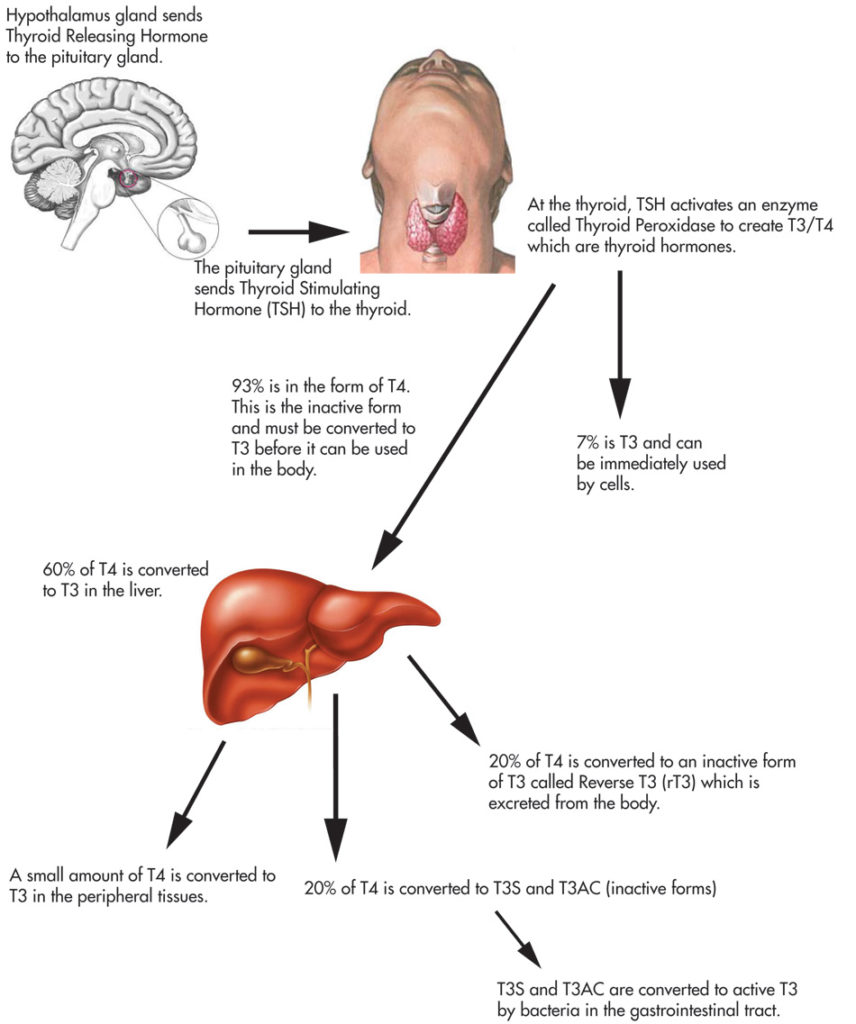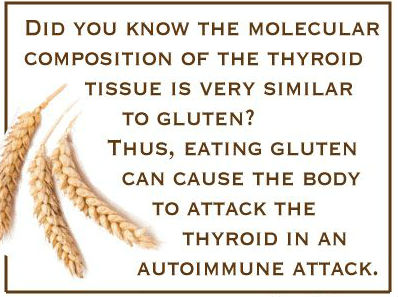Hashimoto’s Thyroiditis (Hypothyroidism)
Hashimoto’s thyroiditis is an autoimmune disease in which the thyroid gland is attacked by various antibody-mediated immune processes, causing primary hypothyroidism (under-active thyroid).
The thyroid gland produces two main hormones: T4 (thyroxine) and T3 (triiodothyronine). These hormones help to control metabolic rate, and also have a huge bearing on energy levels and maintenance of normal body temperature. Most T4 to T3 (active hormone) conversion happens in the liver, kidneys and muscles.

If fatty liver or sluggish liver is present, this conversion will not be effective. This can leave a patient feeling tired, depressed, puffy, overweight and with dry skin and thinning scalp hair. Hence, a thyroid problem can be aggravated or even caused by a faulty liver.
In fact, in most cases, the malfunctioning thyroid gland isn’t the actual cause of the problem. Other areas of the body are usually responsible for the thyroid condition, and while different areas of the body can be affected, in many cases it’s weakened adrenal glands that lead to the development of the thyroid condition.

Gluten is a major factor that needs consideration also. Gluten contains a protein call gliadin which can be detrimental to the thyroid. To the body, gliadin looks very similar to transglutaminase, an enzyme present in high concentration in the thyroid. When the immune system attacks gliadin, the antibodies also attack the thyroid via a process called “molecular mimicry”. As the immune response continues, the thyroid suffers damage for up to 6 months after gluten consumption.
Not only can digestive health suffer when people with Celiac disease or gluten intolerance/sensitivity participate in prolonged gluten consumption, but also thyroid health can drastically degrade. An inactive or under-productive thyroid can interfere with proper hormone synthesis and metabolism, affecting weight and energy, along with a host of other symptoms.

Mood symptoms of hypothyroidism are debilitating and include:
- Depression
- Anxiety, phobias, obsessions & panic attacks
- Irritability, tension, nervousness & easily startled
- Mood swings, personality changes/disorders, rage & feeling of resentment
- Memory loss, brain fog, confusion & poor concentration
- Lack of confidence & wanting to be solitary

Other general symptoms of hypothyroidism are many and include:
- Fatigue
- Weakness
- Weight gain or increased difficulty losing weight
- Coarse, dry hair
- Dry, rough pale skin
- Hair loss
- Cold intolerance
- Muscle cramps & frequent muscle aches
- Constipation
- Abnormal menstrual cycles
- Decreased libido
- Nightmares
Read my “Autoimmune Disorders” article for more information on Hashimoto’s thyroiditis.
